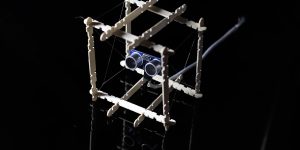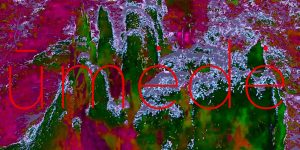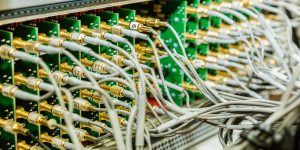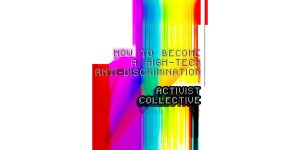Conferences / Lectures / Talks

Role of Media Art
Etsuko Ichihara (JP), Nao Tokui (JP), Natsumi Wada (JP), Shiho Fukuhara (JP), Asako Tomura (JP), Minoru Hatanaka (JP)
Japan Media Arts Festival, which was founded in Japan, focuses on the field of art, entertainment, manga and anime, and is becoming more and more centripetal in its inclusion of various fields. What is the role of media arts in this context? This session the panelist will be discussing the future of media art along with the unique setting of this year’s Ars Electronica to be held online.

Museum inside Network 91 Revisited
Akihiro Kubota (JP), Kazuhiko Hachiya (JP), Koichiro Eto (JP), Yukiko Shikata (JP), Minoru Hatanaka (JP), Seiichi Saito (JP)
NTT ICC in 90s represented an exhibition without reality? This session will invite panelist to think about what media art can do for society in the present day and age, referring to past examples.

Rewinding the History of Japanese Media Art
Ai Hasegawa (JP), Akinori Goto (JP), Ken Furudate (JP), Michiko Tsuda (JP), Minoru Hatanaka (JP), Seiichi Saito (JP)
The history of Japanese media art is very diverse and profound, and it has found various new frontiers. This talk session explores the history of modern Japanese media art in reverse chronological order.

Round Table: Nouvelles technologies et pratiques artistiques dans le contexte d’une crise mondiale:
Sibila Sotomayor Van Rysseghem (CL), Gustavo Celedón Ph.D. (CL), Makis Solomos Ph.D. (FR), Adolfo Vera Ph.D. (CL)
Éthique, Politique, Esthétique et Écologies de l’art - In the round table “New technologies and artistic practices in a global crisis context: Ethics, Politics, Aesthetics and Art Ecologies de l’art texte d’une crise” we aim to reflect collectively about the role of new technologies and art in the current global context with its ethical, political, aesthetical and ecological implications.

Observing the Microscopic Gardens
Saša Spačal (SI), Toby Kiers (NL/US), Esmee Geerken (NL), De Onkruidenier (NL), Spela Petric (SI), Nicola Triscott (UK)
The nocturnal roundtable “Observing the Microscopic Gardens” features three events: 1. Artist Saša Spačal and microbiologist professor Toby Kiers discuss microbial trade agreements 2. Artist/chemist Esmee Geerken and De Onkruideniers present their microscopic garden houses 3. Artist Spela Petric and curator Nicola Triscott discuss what opinions plants and animals might have about human activity on their/our planet.

Observing the Macroscopic Gardens
Christiaan Zwanikken (NL), Raoul Frese (NL), Angelo Vermeulen (BE), Remco Daalder (NL)
The nocturnal roundtable “Observing the Macroscopic Gardens” features two talks: 1. Artist Christaan Zwanikken will talk about city-dwelling plant robots with astrophysicist Raoul Frese 2. Artist-biologist Angelo Vermeulen will talk about socializing Mars-gardens with Remco Daalder, municipal ecologist of Amsterdam

Ūmėdė (pre-symposium)
Julijonas Urbonas, artist Ignas Pavliukevičius, artist and composer Gailė Griciūtė, Vytautas Michelkevičius
Ūmėdė is x⬳ disciplinary symposium for emerging art and related matters, and takes its name from the Lithuanian term for the mushroom Russula. x might stand for post-, ex-, extra-, exo-, trans-, poly-, hyper-, trans-, meta-, ultra-, etc.

Symposium "Unheimliche Freunde"
Around 1978, a metaphor found its way into English android research that the roboticist Masahiro Mori had defined in 1970: the "uncanny valley". Robots that resemble humans too much instill fear and terror. Like us, but never familiar, they inhabit the "uncanny valley." But today, the uncanny valley has almost disappeared. Thanks to RFID chips, GPS and a wide variety of body sensors, our bodies and identities have themselves become interfaces, mouse pointers and prosthetic hands with which algorithms trace and continue to write our profiles. The valley that Mori dug out between the industrial robot and the Nō mask is now levelled. What remains is a suspicion: that the ghosts and the undead are not only the robots, but ourselves as well..

Ars Electronica AIxMusic Online Hackathon
Philippe Esling (FR), Lamtharn Hanoi Hantrakul (TH), Carmine Cella(IT), Edward Tiong (US) and Yishuang Chen (US)
Anlässlich des ersten Online-Festivals veranstaltet Ars Electronica seinen ersten internationalen AIxMusic Hackathon im Rahmen des AIxMusic Festivals 2020.
AI x MUSIC FESTIVAL Opening Ceremony
The Grid (US/EU), Gray Area (US), Codame (US), ZERO1 (US), MUTEK.SF (US), EUNIC Silicon Valley (US), EUNIC Washington DC (US), EUNIC New York (US), Ars Electronica AIxMusic Festival (AT), STARTS, European Commission (EU), Center for Humane Technology (US), Salesforce (US)
Ihr guide zum AIxMUSIC FESTIVAL Opening mit Livestream.

BR41N.IO Hackathon - The Brain-Computer Interface Designers Hackathon
Der BR41N.IO-Hackathon bringt Programmierer, Ingenieure, Designer, Künstler und/oder Enthusiasten zusammen, die in einem interdisziplinären Team intensiv zusammenarbeiten. Jedes Team muss ein einzigartiges, spielerisches und tragbares Kopfstück entwerfen und bauen, das nützliche EEG-Signale in Echtzeit messen kann und jede Art von Interaktion ermöglicht. Die Hacking-Projekte verwenden EEG-Elektroden und -Verstärker und fordern die Programmierer heraus, eine Schnittstelle zu programmieren, die es ihnen ermöglicht, Geräte, Roboter oder Anwendungen zu steuern, Nachrichten in sozialen Medien zu posten, Gemälde anzufertigen oder eine Unzahl anderer Anwendungen nur mit ihren Gedanken in Kraft zu setzen. BR41N.IO fordert auch kreative Köpfe dazu heraus, ein BCI-Headset mit 3D-Druckern, handgefertigten Materialien und Nähmaschinen zu entwerfen.

Nushin Isabelle Yazdani und Internet Teapot (Karla Zavala und Adriaan Odendaal): [d/r]econstructing AI - dreams of visionary fiction and zine-making
How to Become a High-Tech-Anti-Discrimination Activist Collective
In diesem Workshop untersuchen wir die Strukturen hinter algorithmischen Entscheidungsfindungssystemen. Es wird diskutiert, warum ihr Design normativ ist und wie KI-Systeme die strukturelle Diskriminierung verstärken.

LAB ON STAGE (Adriana Torres Topaga, Martyna Lorenc and Andrea Maria Handler): Phantom Data in our bodies and imagination
How to Become a High-Tech-Anti-Discrimination Activist Collective
Dieser Workshop verfolgt einen performativ-künstlerischen Ansatz. Unser Ausgangspunkt ist die Verkörperung von Vorstellungs- und Wahrnehmungsprozessen.

Astrid Mager und Hong Phuc Dang: How to create your own AI device with SUSI.AI - An Open Source Platform for Conversational Web
How to Become a High-Tech Anti-Discrimination Activist Collective
Der Workshop stellt SUSI-Komponenten wie den Technologiestack von SUSI, seinen Wiki-ähnlichen Skill-Editor und Hardware-Prototypen vor; die Teilnehmer*Innen arbeiten zusammen, um einen einfachen Bot zu erstellen, und um neue Fähigkeiten zu entwickeln und testen. Eine Reflexion über Datenverzerrung und algorithmische Diskriminierung lädt dazu ein, gemeinsam über die Schaffung diskriminierungsfreier digitaler Technologien nachzudenken.

Doris Allhutter: “When I encountered discriminating IT-systems and did not want to take it anymore” - deconstructing affective entanglements in society-technology relations
How to Become a High-Tech Anti-Discrimination Activist Collective
Dieser Workshop wendet die dekonstruktive Methode des Mind Scripting an, um den Einfluss zu verstehen, den selbst Technologien, die wir ablehnen, auf uns haben können. Anhand unserer eigenen Erinnerungen als experimentelle Ressource werden wir untersuchen, wie sich Diskriminierung und Privilegien in unseren Praktiken materialisieren. Dies zielt darauf ab, kollektive Handlungsfähigkeit und Aktivismus zu entwickeln.

Safiya Umoja Noble: Algorithms of Oppression - How Search Engines Reinforce Racism
How to Become a High-Tech Anti-Discrimination Activist Collective
Die Informationslandschaft verändert sich rasch, da neue Anforderungen die Investitionen in digitale Technologien erhöhen. Kritische Wissenschaftler*Innen zeigen jedoch immer wieder auf, wie viele Technologien von Werten geprägt und durchdrungen sind, die nicht unparteiisch und körperlos sind oder denen es an Positionierungsfähigkeit fehlt. Technologien haben rassen-, geschlechts- und klassenpolitische Bedeutung. In diesem Vortrag wird Dr. Safiya Noble über ihr kürzlich erschienenes Buch „Algorithms of Oppression“ und den Einfluss der Technologie auf die Öffentlichkeit sprechen.

Lisa Nakamura: Estranging Digital Racial Terrorism After COVID
How to Become a High-Tech Anti-Discrimination Activist Collective
In diesem Vortrag wird argumentiert, dass COVID-19 eine beschleunigte Migration zu digitalen Netzwerken erzwang. Dieses neue Publikum wurde sowohl mit rassistischen und traumatisierenden digitalen Inhalten auf den Plattformen konfrontiert, als auch mit neuen Möglichkeiten für Kritik und Widerstand.

The Woman-Machine
le lieu unique (FR)
The Woman-Machine is a two-day event on the main stage of le lieu unique. In response to La Mettrie (and Kraftwerk) le lieu unique invites artists, scientists and performers to discuss the relationship between AIs and gender, robots and feminism, machine learning and the world after the pandemic.

How to Become a High-Tech Anti-Discrimination Activist Collective
IFG-LIT (AT)
Neue Technologien sind in alle Aspekte unseres Lebens eingedrungen und versprechen eine breite Palette an Verbesserungen und Erleichterungen. Allerdings funktionieren Algorithmen, auf welchen diese Technologien basieren, im Gegensatz zur allgemeinen Wahrnehmung weder in neutraler Weise, noch behandeln sie alle Leute gleich.

Agora Digitalis
Agora Digitalis is the Interface Cultures’ meeting point during the 2020 Campus Exhibition. The general idea behind it is to create an informal setting where students, (future) makers and future students can meet and become acquainted with Interface Cultures. Agora Digitalis is a physical and virtual place where everyone should be able to share and express their ideas


